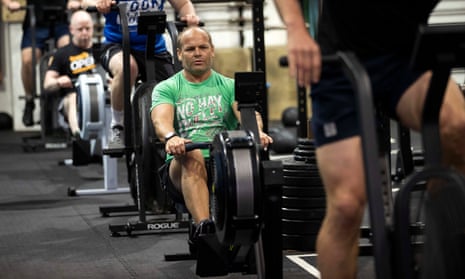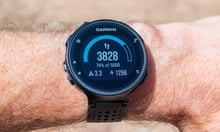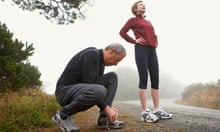Gyms are temples for the terminally vain to worship their own bodies and set fire to their cash. If you want to self-improve, read a book: and why, given the limited time slot granted to each of us to be alive, waste so much time in self-indulgent solitude? More sinister than that, gyms prey on insecurities fostered by a popular culture that worships unrealistic physical types: and as a gay man, I belong to a community in which body dysmorphia struts around the dancefloor with gleeful abandon.
That used to be what I thought, anyway, and even when I surrendered to gym membership, I felt like a tone-deaf singer signing up for a choir. Everyone else seemed to know what they were doing, flexing with free weights in all sorts of unlikely poses while I sheepishly faffed around with the treadmill and aimlessly tried the occasional weight machine hoping that grunting a lot was some sort of sign of progress. (It’s reassuring to know this did not make me exceptional: research suggests more than half of us don’t know what to do in the gym.)
This year, I changed my mind for a few reasons. First, I’d put on weight during lockdown – like most Britons, who on average added half a stone – in large part because, like one in three British adults, my drinking went up. Lockdown boredom, the stress of writing a book, and politics increasingly resembling a burning skip did not help. Second, I didn’t want to remember this unsettling era as a miserable life-devouring black hole: better to be able to say that at least it spurred a positive change. Third, I was still reeling from turning 37 and the realisation that, “Oh, so you really do just hurtle through life, and without making changes, your health faces a downhill slope.”
Beginning more than two months before gyms reopened on 12 April, I drastically cut down on drink, combined running with high-intensity interval training – that’s where you do start/stop bursts of vigorous exercise – and ate a lot of Greek yoghurt. This approach is not for everyone, and, with hindsight, was something of an error: losing weight fast is liable to reduce body fat and muscle at the same time.
So, not long after the gyms reopened, I decided to focus on building muscle for a few reasons, none of them to do with becoming the Arnold Schwarzenegger of the left. It’s good for health, and research even suggests it’s good for brain function. It reduces stress and improves emotional wellbeing, powering up endorphins on a search-and-destroy mission to take out bad thoughts. When I’m working out, I have to concentrate – not something that comes easily in my case – so I can forget all the people who’ve loudly decided I’m the socialist Antichrist on Twitter. There’s the satisfaction of learning and mastering new skills – particularly those you always believed you were simply hardwired to never acquire. Everyday physical tasks become easier, turning you into a more helpful resource. You lay a healthy foundation for later years to build on. It’s undeniably rewarding, too, to put significant effort into something and see results, even if that can be construed as vanity.
Here is a far healthier alternative to the scams that are diets, too, the vast majority of which eventually end with the dieter putting on more weight than they started with. Indeed, I’ve been forced to learn far more about food and how the body works. Rather than seeing carbohydrates as inherently bad, to be labelled “strong avoid”, I’ve come to understand good carbs – such as oats, wholemeal bread, vegetables and whole fruits – as a source of fuel, so that protein can be used to build muscle rather than broken down inefficiently as energy. I now eat more than ever, just more mindfully about what the body deems more helpful. That matters because a balanced diet is much more important than flexing your guns in the local gym.
Above all, it’s been educational. Rather than haphazardly using whichever machine looks least intimidating, I searched the internet to adopt a regimen that works different muscle groups on different days. Thanks to YouTube, a friend, and a brilliant personal trainer called Nathan once a week, I learned the proper form for each exercise – important if you want to avoid injury. And so, aged 37, I’m the healthiest I’ve ever been.
So many caveats need to be applied here. This is easy to do if you have no kids, live next to a gym you can afford to join, and have a work life you can flexibly juggle. I haven’t changed my mind about the evils of body dysmorphia, and the importance of embracing the different ways our bodies manifest. And while the market size of the gym and fitness sector in the UK nearly doubled to more than £2bn in the 2010s, for many, membership doesn’t mean much other than feeling better for having done something. In the US, less than one-fifth of gym members use their paid-for facilities consistently. Like anything, the gym needs commitment, being comfortable with the trial and error that forms the basis of education, and building up new skills. But in my case, it’s worked, improved both my physical and mental health, and made life more satisfying: so here’s to changing my mind.
Owen Jones is a Guardian columnist









